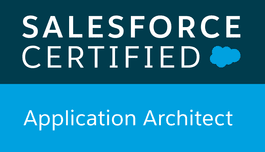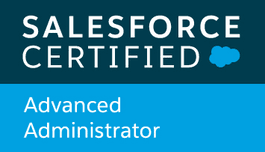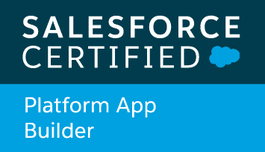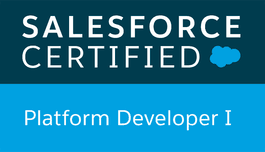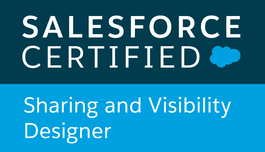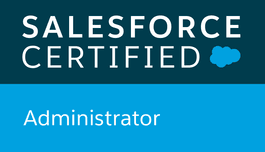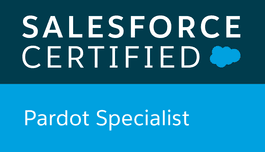Salesforce FAQs
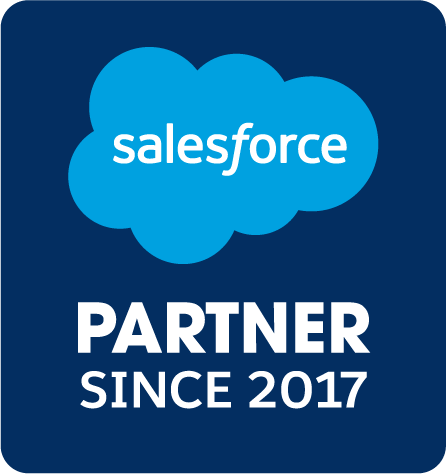
We are Here to Answer Your Questions
KeyNode Solutions, with our years of experience, has frequently been asked important questions about Salesforce and how it can help businesses improve efficiency while maximizing revenue.
To help others with similar questions, our US-based Salesforce consultants and admins have answered a number of Frequently Asked Questions (FAQs) about Salesforce.
If you need any additional information or have a question you don’t see here, do not hesitate to contact us at hello@keynodesolutions.com or call us at 858-215-5371.
Salesforce is a cloud-based customer relationship management (CRM) platform that helps businesses manage their sales, marketing, customer service and operations. Founded in 1999, Salesforce revolutionized CRM by offering it as a Software-as-a-Service (SaaS) product, enabling companies to access their data from anywhere with an internet connection. Its core functionality includes tracking customer interactions, managing leads and opportunities, automating workflows and analyzing performance through real-time analytics.
One of Salesforce’s major strengths is its adaptability and scalability, making it suitable for businesses of all sizes and industries. The platform offers various cloud-based products such as Sales Cloud, Service Cloud, Marketing Cloud and Commerce Cloud, which integrate seamlessly to provide a unified customer view. Additionally, Salesforce supports customization through its Lightning Platform, where developers can build custom apps.
Salesforce also emphasizes innovation with technologies like artificial intelligence, which provides predictive insights and automation to enhance decision-making. Its extensive AppExchange marketplace allows businesses to find and integrate third-party apps tailored to their needs.
Overall, Salesforce empowers organizations to build stronger customer relationships, improve productivity and drive growth through data-driven strategies and collaboration tools, all within a secure, cloud-based environment.
Salesforce stands out as a superior Customer Relationship Management (CRM) platform due to its scalability, flexibility and extensive ecosystem. Unlike many other CRMs, Salesforce offers a highly customizable environment that can be tailored to fit the specific needs of any business, from small startups to global enterprises. Its cloud-based architecture allows teams to access data in real time from anywhere, improving collaboration and decision-making.
Salesforce also leads in innovation, consistently integrating cutting-edge technologies like artificial intelligence, which provides predictive analytics and automated insights to enhance customer relationships. The platform supports a wide range of integrations with third-party applications, making it easier to unify sales, marketing, service and commerce under one system.
Moreover, Salesforce’s AppExchange marketplace gives users access to thousands of pre-built apps, tools and extensions to expand functionality without custom development. Its robust automation features streamline workflows, reducing manual tasks and increasing productivity.
Salesforce also invests heavily in customer success, offering extensive training, support and a strong user community. These features make Salesforce not just a CRM but a powerful platform for driving business growth and innovation.
Salesforce is a leading customer relationship management (CRM) platform that offers a wide range of benefits for businesses of all sizes. One of the key advantages is its ability to centralize customer data, allowing teams to access real-time information, improve customer interactions and enhance decision-making. With its cloud-based architecture, Salesforce enables remote access and seamless collaboration among sales, marketing and customer service departments.
Another major benefit is its automation capabilities. Salesforce streamlines repetitive tasks like data entry, email follow-ups and lead scoring, freeing up time for staff to focus on high-value activities. Its analytics and reporting tools provide deep insights into sales performance, customer behavior and marketing effectiveness, helping organizations refine their strategies.
Salesforce is also highly customizable and scalable, allowing businesses to tailor the platform to their unique needs and grow with it over time. Integration with other apps and services—such as email, social media and ERP systems—further enhances its functionality.
Additionally, Salesforce’s AppExchange marketplace offers thousands of prebuilt apps and integrations, increasing its versatility. Overall, Salesforce empowers organizations to build stronger customer relationships, boost productivity and drive growth through data-driven strategies and streamlined operations.
Salesforce can significantly enhance your business by streamlining customer relationship management (CRM), boosting productivity and driving growth. As a cloud-based CRM platform, Salesforce centralizes all customer data, enabling your team to access real-time insights, track interactions and manage leads efficiently. This unified view helps improve customer service, foster stronger relationships and close deals faster.
With tools for sales automation, marketing, service and analytics, Salesforce allows businesses to optimize every stage of the customer journey. Its AI-powered features, like Salesforce Einstein, provide predictive analytics and personalized recommendations, helping you make smarter business decisions.
Salesforce is highly customizable and scalable, which means it can adapt as your business grows. You can tailor it to your industry needs, integrate it with other tools and automate repetitive tasks to save time and reduce human error.
In addition, Salesforce’s cloud-based platform ensures secure access from anywhere, supporting remote work and collaboration. Its robust app ecosystem via the AppExchange lets you expand functionality further.
Ultimately, Salesforce empowers businesses to increase efficiency, enhance customer engagement and drive revenue. Whether a startup or an enterprise business, Salesforce provides the tools and flexibility to support growth and long-term success.
Salesforce is widely used by companies of all sizes across various industries due to its powerful Customer Relationship Management (CRM) capabilities. Major global corporations such as Amazon, Spotify, Toyota, Coca-Cola and American Express rely on Salesforce to manage customer data, sales processes and marketing automation. Tech companies like Google and Facebook (Meta) use Salesforce to streamline customer support and optimize business operations. In the financial sector, firms such as Barclays and Bank of America utilize Salesforce for client management and compliance tracking.
Retail giants like Walmart and Adidas employ Salesforce to personalize customer experiences and boost engagement. Healthcare organizations, including Philips and Johnson & Johnson, use it to manage patient relationships and ensure regulatory compliance. Educational institutions and non-profits also leverage Salesforce’s platforms for fundraising, student engagement and administrative efficiency.
Startups and small businesses use Salesforce Essentials, a version tailored for growing companies, to manage sales pipelines and scale their operations efficiently. Overall, Salesforce’s flexibility, cloud-based architecture, and robust ecosystem make it a go-to CRM solution for businesses in industries ranging from finance and healthcare to retail and manufacturing. Its customizable tools and integration capabilities continue to attract companies seeking to improve their customer experience and operational agility.
Yes, Salesforce has an extensive network of partners that play a crucial role in its ecosystem. These partners fall into several categories, including Consulting partners, Managed Services Provider (MSP), technology partners, independent software vendors (ISVs) and resellers. Consulting partners, such as Accenture, Deloitte and Slalom, help businesses implement and customize Salesforce solutions to meet their specific needs. Technology partners, like DocuSign and HubSpot, integrate their platforms with Salesforce to enhance its functionality. Salesforce Managed Services Partners such as KeyNode Solutions provide ongoing management, support, and improvement services for your Salesforce platform. They act as an extension of your in-house team, handling daily tasks and proactive enhancements to ensure your Salesforce CRM is optimized and aligned with your business needs.
Salesforce’s AppExchange marketplace showcases thousands of partner-built apps and services that extend the core capabilities of the platform. This ecosystem allows customers to find ready-made solutions or custom services tailored to their industry or business processes. Independent software vendors develop and list their applications on AppExchange, contributing to a vibrant third-party developer community.
Salesforce provides partners with tools, training and resources to succeed. Partner programs foster innovation, collaboration and shared growth between Salesforce and its partners. By leveraging this broad network, businesses can accelerate their digital transformation and maximize the value of their Salesforce investment. In summary, Salesforce not only has partners—it relies heavily on them to deliver comprehensive, scalable solutions to customers worldwide.
As of 2025, the Salesforce partner ecosystem comprises more than 6,000 organizations worldwide, encompassing technology partners, consulting firms and channel partners. Specifically, there are approximately 5,718 technology partners and 299 channel partners, with Amazon Web Services being one of the largest collaborators.
The number of Salesforce consulting partners has seen significant growth, increasing by 20% year-over-year to nearly 3,000 as of mid-2024. These partners play a crucial role in implementing Salesforce solutions, with 70% of Salesforce implementations led by credentialed experts from partner organizations.
Salesforce’s AppExchange, the enterprise cloud marketplace, features more than 7,000 prebuilt and customizable apps, reflecting the extensive reach and diversity of its partner offerings. This robust ecosystem is integral to Salesforce’s strategy, enabling customers to extend the platform’s capabilities across various industries and business needs.
Salesforce does not necessarily require coding for all solutions. Many tasks can be accomplished using Salesforce’s declarative, “clicks not code” tools, such as Flow Builder and the Lightning App Builder. These allow users to automate processes, create custom user interfaces and manage data without writing any code.
However, for more complex customizations and integrations, working with an experienced Salesforce partner may be necessary. Salesforce uses Apex, a proprietary programming language similar to Java, for back-end logic, and Visualforce or Lightning Web Components (LWC) for building custom front-end interfaces. Developers use these tools to create highly tailored solutions that go beyond what declarative tools offer.
In summary, coding in Salesforce is not required for basic configuration or admin tasks, but it becomes necessary for advanced development, customization and often integrations.
Salesforce’s Lightning Experience is a modern, user-friendly interface designed to enhance productivity and efficiency for Salesforce users. Introduced as an upgrade from Salesforce Classic, Lightning Experience offers a sleek and responsive design with a focus on intuitive navigation, customizable dashboards and component-based development. It enables users to personalize their workspace with drag-and-drop components, improving how information is displayed and accessed.
One of the core benefits of Lightning Experience is its support for Lightning Components and the Lightning App Builder, allowing developers and admins to create dynamic, reusable UI elements without extensive coding. These tools help businesses tailor the Salesforce platform to meet specific needs more easily.
Lightning Experience also improves sales and service processes with features like Kanban views, activity timelines and AI insights, which help users track and manage customer interactions more effectively. Additionally, it supports enhanced reporting and analytics, empowering users to make data-driven decisions in real time.
Salesforce is continuously enhancing Lightning Experience, making it the default interface for new users and encouraging organizations to transition from Classic. Overall, Lightning Experience is a powerful, scalable solution that drives user adoption and boosts business performance through modern design and advanced functionality.
Salesforce offers a variety of cloud-based solutions, known as “clouds,” each tailored to different business functions. Sales Cloud is designed for sales teams, helping manage leads, opportunities, accounts and customer relationships to drive revenue. Service Cloud supports customer service operations with tools for case management, knowledge bases and omnichannel support. Marketing Cloud enables marketing automation, email marketing, customer journeys and audience targeting to enhance customer engagement.
Commerce Cloud facilitates e-commerce experiences, offering both B2C and B2B solutions with integrated order management and personalization tools. Experience Cloud (formerly Community Cloud) allows companies to build branded portals and forums for customers, partners or employees. Analytics Cloud provides AI-powered business intelligence and data visualization capabilities.
Financial Services Cloud, Health Cloud, Manufacturing Cloud and Education Cloud are industry-specific solutions tailored for finance, healthcare, manufacturing and education, respectively. Nonprofit Cloud supports fundraising, donor management and program delivery for nonprofit organizations.
Salesforce offers a number of other cloud-based solutions to maximize efficiency for the platform’s users in addition to continuing to create new ones.
Salesforce Marketing Cloud Account Engagement (formerly Pardot), is a sophisticated B2B marketing automation platform that seamlessly integrates with Salesforce’s customer relationship management system. Its core objective is to empower businesses in their efforts to attract, nurture and ultimately convert prospective customers into loyal clients. This comprehensive solution provides tools for generating new leads through customized forms and landing pages, while also enabling the creation of automated, personalized email campaigns to guide prospects through their buying journey.
Salesforce Marketing Cloud Account Management helps sales and marketing teams collaborate more effectively by offering detailed insights into prospect behavior, including their engagement with various marketing assets. This visibility allows for intelligent lead scoring and grading, ensuring that sales teams prioritize their efforts on the most promising opportunities. Beyond lead management, the platform facilitates robust email marketing, campaign management across multiple channels and in-depth analytics to measure the return on investment for marketing initiatives. By automating repetitive tasks and providing data-driven insights, the platform streamlines marketing processes and fosters stronger alignment between sales and marketing objectives, ultimately driving revenue growth for B2B organizations.
Salesforce Community Cloud, now known as “Experience Cloud,” is a digital experience platform provided by Salesforce that enables businesses to create branded online portals for customers, partners and employees. These portals serve as interactive spaces where users can engage with one another, share information and access important content or services.
Designed to enhance collaboration and streamline communication, Experience Cloud integrates seamlessly with other Salesforce tools like Sales Cloud, Service Cloud and Marketing Cloud. It allows businesses to create portals, forums and help centers tailored to their specific needs. For example, a customer portal might offer self-service options such as knowledge bases and case tracking, while a partner portal might provide sales tools, training materials and lead management capabilities.
The platform supports personalization, allowing users to receive content and updates relevant to their roles or interests. It also includes robust analytics to monitor engagement and performance. Built on the secure Salesforce platform, Experience Cloud offers mobile-responsive design, customizable templates and the flexibility to extend functionality through custom apps or third-party integrations.
Salesforce Experience Cloud empowers organizations to foster stronger relationships by connecting users in a shared digital space, enhancing support, boosting productivity and driving business growth.
Yes, there is a seamless HubSpot integration with Salesforce, enabling businesses to align their marketing and sales efforts effectively. This native integration allows for bi-directional data synchronization, ensuring that contacts, companies, deals and activities remain consistent across both platforms. Such synchronization facilitates a unified view of customer interactions, enhancing collaboration between teams.
The integration process involves installing the HubSpot-Salesforce connector through HubSpot’s App Marketplace. Once installed, users can configure synchronization settings, including field mappings and sync directions—choosing between one-way or two-way data flows. Additionally, users can set inclusion lists to control which records sync between the systems.
A notable feature of this integration is the HubSpot Visualforce module, which can be added to Salesforce layouts. This module provides sales teams with direct visibility into HubSpot activities, such as email engagements and form submissions, without leaving the Salesforce environment.
For organizations seeking advanced capabilities, HubSpot’s Operations Hub offers enhanced tools like custom field mappings, data quality automation and more sophisticated workflow management.
In summary, integrating HubSpot with Salesforce streamlines data management, fosters interdepartmental collaboration, and provides a comprehensive view of the customer journey, thereby driving more informed business decisions.
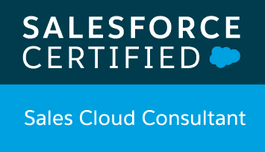
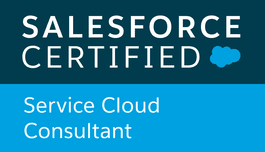
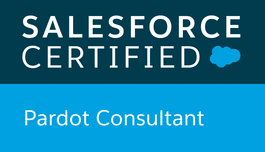
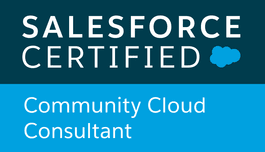
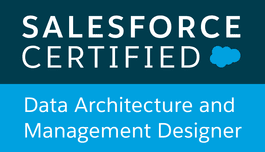
Trusted by Top Innovative Companies Nationwide


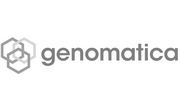
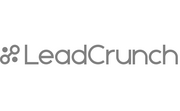



Let KeyNode Solutions Help You!
Call us today at (858) 215-5371 or simply complete this form
Our team of dedicated San Diego-based Salesforce-certified consultants will be happy to simplify your day-to-day management of Salesforce and make it work for your business at full capacity.
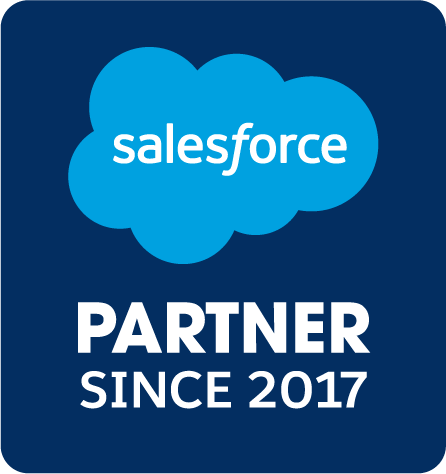
Your success is our 100% priority!

